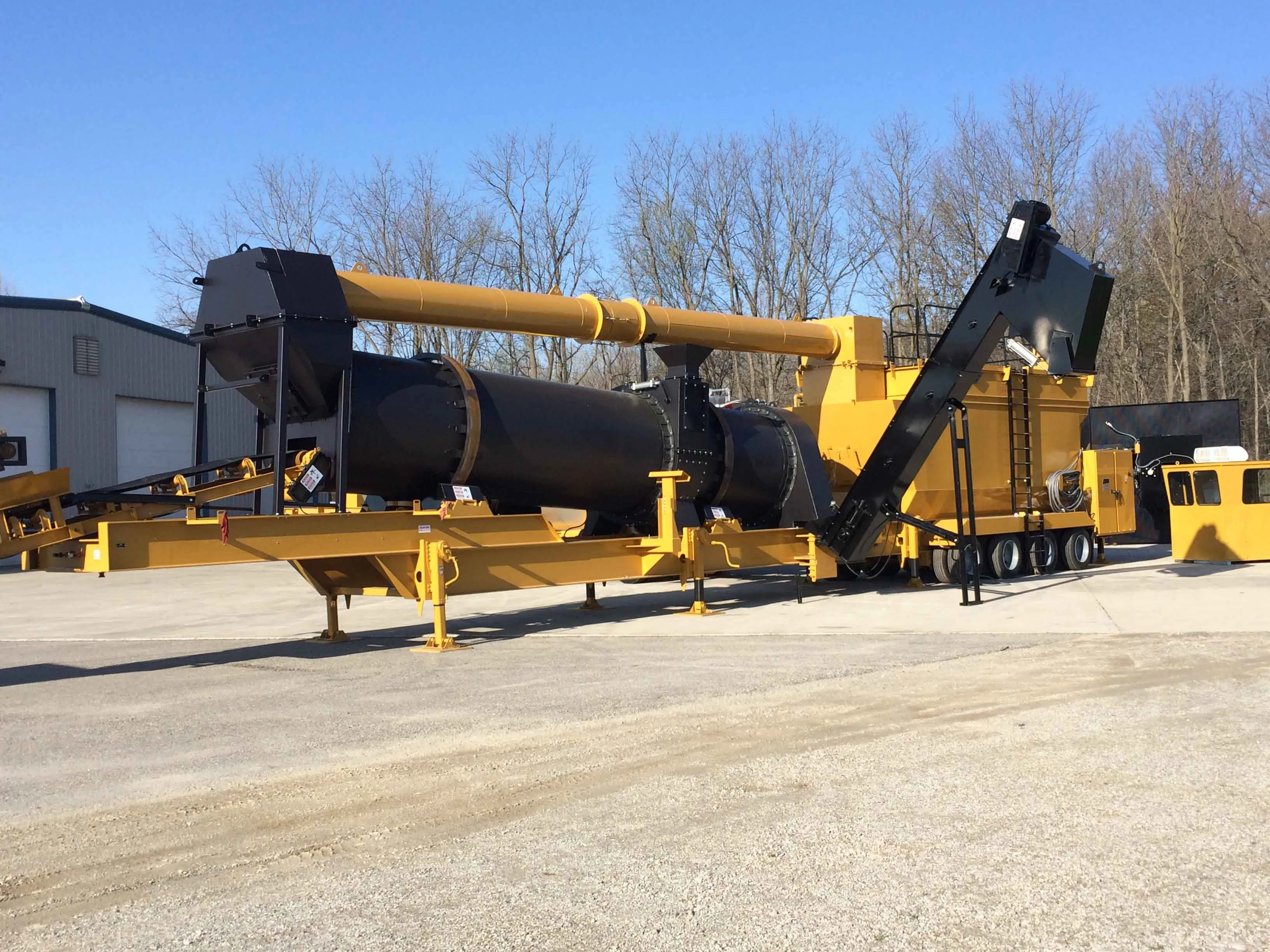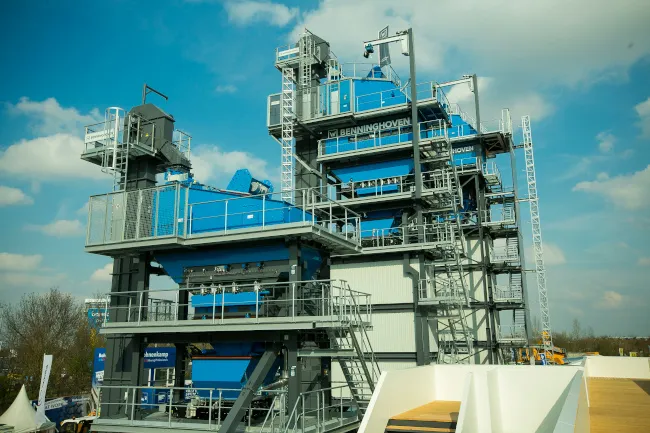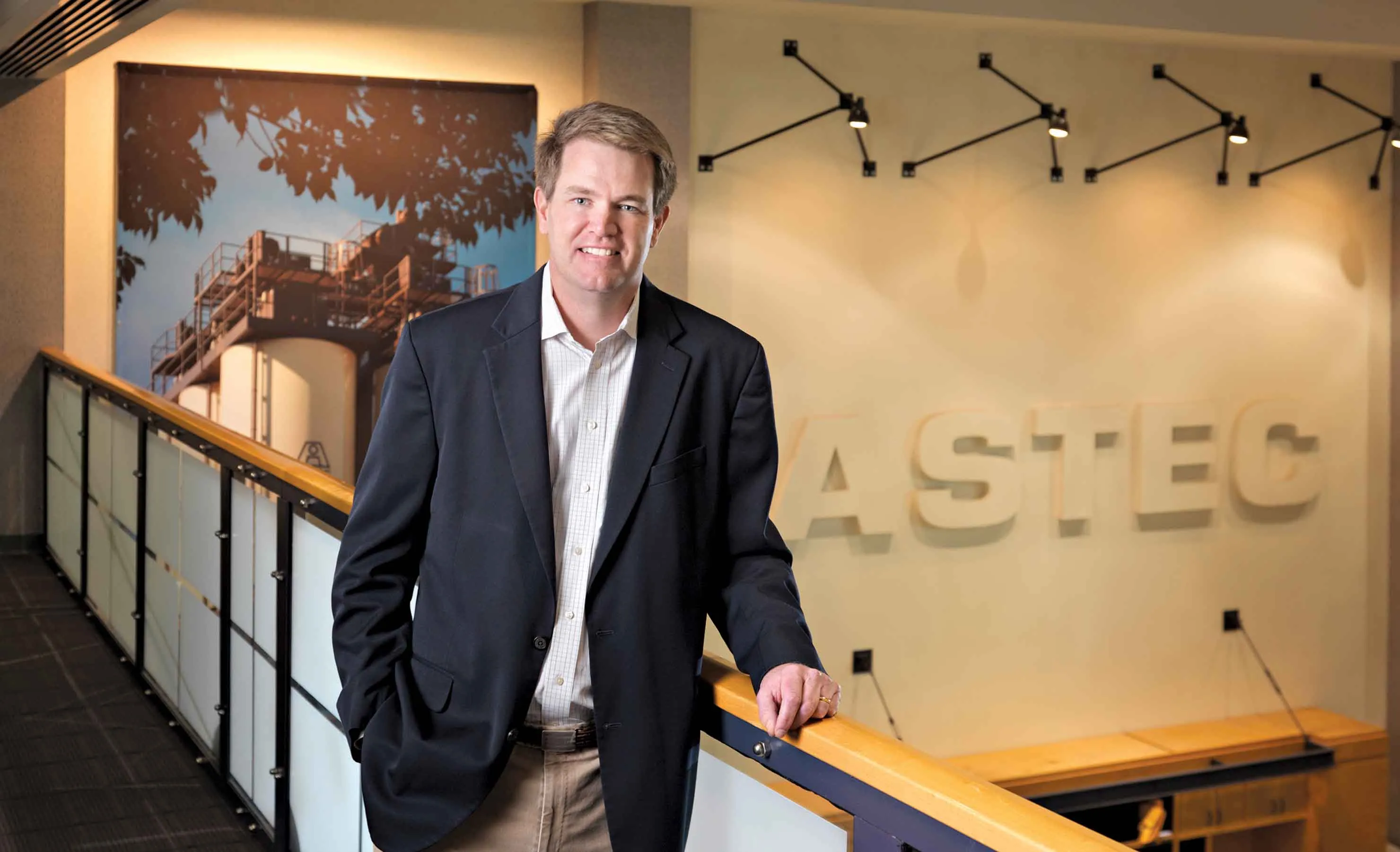
“The EX120 combines the innovative counterflow technology of our EX Series with the compactness and portability of our SPL Series,” said Mike Devine, Asphalt Drum Mixers president. “The result is a dependable asphalt plant that goes wherever you need it to go while producing material at a low cost/tonne and delivering a high ROI.”
The EX120 boasts the longest aggregate drying and mixing times in the industry, resulting in a low cost/tonne. The unit is said to offer a consistent flow of quality asphalt and avoid product being out-of-spec. In addition, the plant is capable of processing as much as 50% of RAP in the feed.
The plant uses counterflow technology with separate drying and mixing zones allows the EX120 to achieve maximum heat transfer and fuel efficiency. The system minimises unsafe carbon emissions that are a common problem with earlier generation drum mix plants. ADM further reduces emissions by designing the counterflow system to reintroduce gases back to the drum’s combustion zone.
Similar to ADM’s SPL Series asphalt plants, engineers designed the EX Series for smaller output and optimal transport. The entire EX120 plant sits on one chassis for easy movement from site to site. This makes it ideal for remote and demanding locations worldwide. In addition, the portable plant’s compact size and easy manoeuvrability is claimed to simplify the process of obtaining an operating permit when compared to stationary plants. This is because the EPA considers portable plants to be temporary and stationary plants to be permanent.
Plant capabilities are highly sophisticated, yet controls are simple to operate. One plant operator and one loader operator can control the EX120. The firm says that the plant is designed to be both durable and easy to maintain, while it also benefits from the use of readily available parts.
Customers can choose from a full range of components to customise the plant for their operation. ADM offers cold feed bins, hot oil asphalt cement tanks (both horizontal and vertical), direct-fired horizontal cement tanks, portable and stationary baghouses, mineral filler systems, RAP systems, self-erect and stationary silos, weigh and drag conveyors, weigh batchers and fuel oil tanks.
Meanwhile
However Van Broekhoven commented that the situation with regard to large batching plants in the US could be rather different. He said, “We do believe that there is a market in the US for large batch plants.”
This has much to do with the comparatively high usage of RAP in the US road construction sector. “If you look at the potential for higher RAP percentages in asphalt mixes then you see a potential for Ammann.”
At present contractors in the US are achieving RAP use of around 30-40% in asphalt mixes, which he said offers a potential for Ammann with its latest tecthnology. It is worth noting however that some of the US firms do also offer plants able to use much higher percentages in the mix.
He said that he believes the North American market for large batching plants could represent around 10% of the total market for asphalt plants. He added that following the exhibition, “We’ve had a larger response than we’d have expected. We’ll use a measured approach and take it from there.”
The firm’s technology offers some benefits and he explained, “We can use 100% RAP in the mix but you need to sort the material and preheat it and so on. It’s complicated.” He said that for most applications, “We are very happy with a 60% use of RAP.”
He said that he sees an opportunity for the firm in North America as contractors are looking to increase the percentages of RAP in mixes, as well as being keen to improve energy efficiency. “It’s a tough nut to crack,” He said, explaining that Ammann will have to carry out a series of demonstrations to US customers to prove its point with regard to efficiency.
Earlier this year
Amomatic CEO Pasi Vuorinen said, “Good customer feedback from our current customers has encouraged us to seek even more companies who value exact delivery times, fast response, individual service and flexibility. We are used to short Northern manufacturing seasons where plants simply must work full speed all the time and where there are no excuses for breaks. We have designed our plants so that breaks don’t happen unexpectedly.”
One of the biggest projects being developed after the design of the Container Model asphalt plant was Amomatic creating a system called AMOPEPPER. According to project manager Casimir Kasvi, this will feature a new system for handling RAP and will be ready shortly, with the firm taking its first orders soon after. Kasvi said, “Tests with prototypes were showing good results, but we still need to run full capacity tests to get the knowledge of what recipes customers should use when using this innovative process.”
The aggregates will be separated from the bitumen and both can be stored for further use in roadbeds or in other places. “There has been tremendous interest in this new system since it will change the future of RAP handling all over the world,” according to Kasvi.
To meet increasing demand for plant rental, the firm is now offering customers the option to rent an entire plant from Amomatic. The service means that customers will not need such a large investment at the beginning of an operation and Amomatic expects the market to grow. Customers are also able to select the SM (semi mobile) and M (mobile) units.
Jussi Länsitalo, the head of the services department said, “This is again in an effort to make things easier for our customers. When there is a clear need for more asphalt production but that the heavy investment of buying a new plant is hard to make, this will help get things started faster. You can now rent the operator, service and plant from us; I believe starting the production of asphalt has never been easier.”









